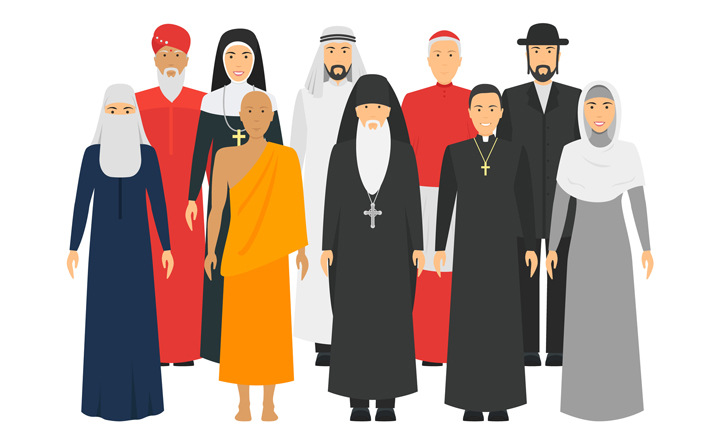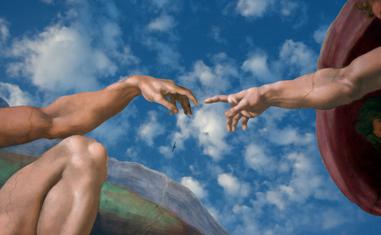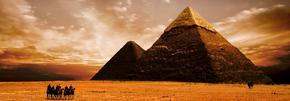The views expressed in our content reflect individual perspectives and do not represent the authoritative views of the Baha'i Faith.
Suppose I were to ask someone to download a picture of God. In that case, I’m pretty confident the winner would be Michelangelo’s painting of God creating Adam, which he painted on the ceiling of the Sistine Chapel — it’s full of many myths about God, such as His constant depiction as a Caucasian man. But to Michelangelo’s credit, how could one hope to visually depict God?
While the Bahaʼi Writings teach of a personal God who is a being with a personality (including the capacity to reason and to feel love), they clearly state that this does not imply a human or physical form:
Such conception of the Divine Being, as the Supreme and ever present Reality in the world, is not anthropomorphic, for it transcends all human limitations and forms, and does by no means attempt to define the essence of Divinity which is obviously beyond any human comprehension. To say that God is a personal Reality does not mean that He has a physical form, or does in any way resemble a human being.
This helps us view God as something bigger than our own imagination — a Divine Being so powerful that He transcends the differences between different religions’ depictions of divinity. We can begin to understand the truth behind them.
One of the principles of the Baha’i Faith is that all religions are more alike than not. Baha’u’llah, the prophet and founder of the Baha’i Faith, taught that the religions of the world come from the same heavenly source and that “the difference between the ordinances under which they abide should be attributed to the varying requirements and exigencies of the age in which they were revealed.”
This puts an end to any sense of superiority any religion might have. As Abdu’l-Baha, the son of Baha’u’llah, explained: “A star has the same radiance if it shines from the East or from the West. Be free from prejudice, so will you love the Sun of Truth from whatsoever point in the horizon it may arise!”
Throughout history, as the prophets have revealed new truths to us, our understanding of God has progressed. From the time of Adam, through Abraham, Moses, Zoroaster, Krishna, Buddha, and Jesus, we have gradually learned more about the oneness of God. Baha’is believe that through Baha’u’llah and his forerunner the Bab, we have advanced even more in our understanding of God — although we can never hope to understand Him completely.

As Baha’u’llah wrote: “So perfect and comprehensive is His creation that no mind nor heart, however keen or pure, can ever grasp the nature of the most insignificant of His creatures; much less fathom the mystery of Him Who is the Day Star of Truth, Who is the invisible and unknowable Essence.”
Abdu’l-Baha further explained “Lordly Reality admits of no division; for division and multiplicity are properties of creatures which are contingent existences, and not accidents which happen to the self-existent.”
The Bahaʼi teachings state that one can develop a closer relationship with God through prayer, meditation, study of the holy writings, and service to humanity. Abdu’l-Baha wrote:
Nearness to God is possible through devotion to Him, through entrance into the Kingdom and service to humanity; it is attained by unity with mankind and through loving-kindness to all; it is dependent upon investigation of truth, acquisition of praiseworthy virtues, service in the cause of universal peace and personal sanctification. In a word, nearness to God necessitates sacrifice of self, severance and the giving up of all to Him. Nearness is likeness.
Each one of us is tasked with finding our way to this Divine Truth, by investigating the divine teachings available to us. Allow me to be direct: God is not something to toy with. In my opinion, the question, “Is this religion right for me?” isn’t the right thing to ask. The only meaningful question is, “Do these teachings come from God or not?” If they do not, then we must discard them. But if we cannot find anything that we can say is not of God, then we are compelled to investigate further. If they come from God, our duty, our destiny, our karma is to accept them and mold ourselves around them and put them at the core of our beings, so that we can rise to our true potential. As Abdu’l-Baha said, “Nearness is likeness.”

















Comments
Sign in or create an account
Continue with Facebookor